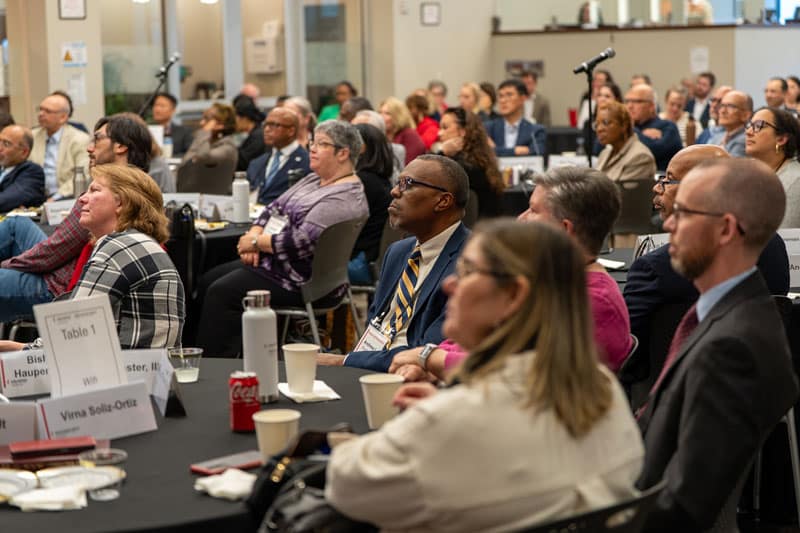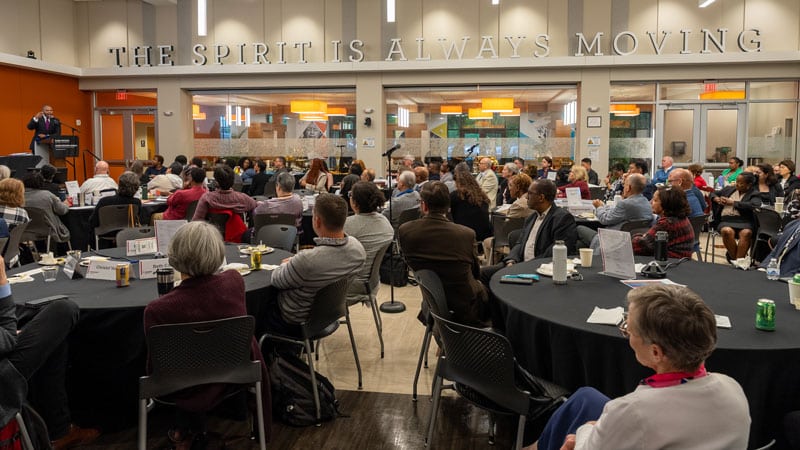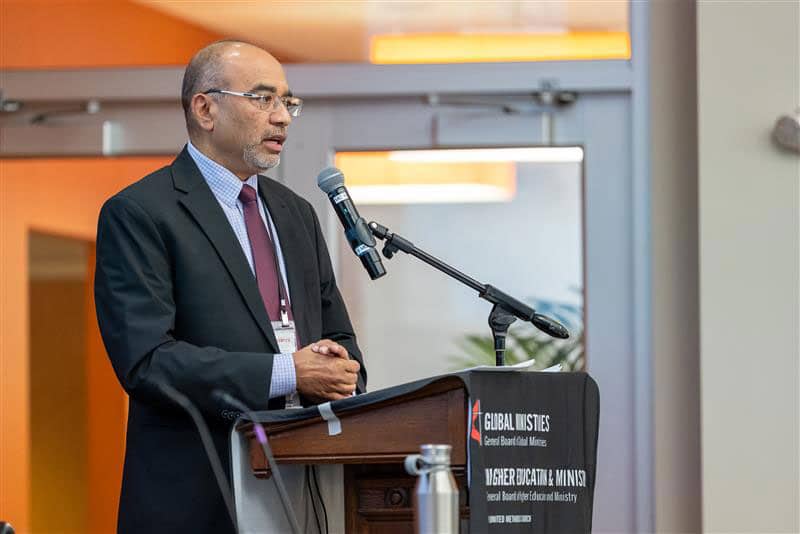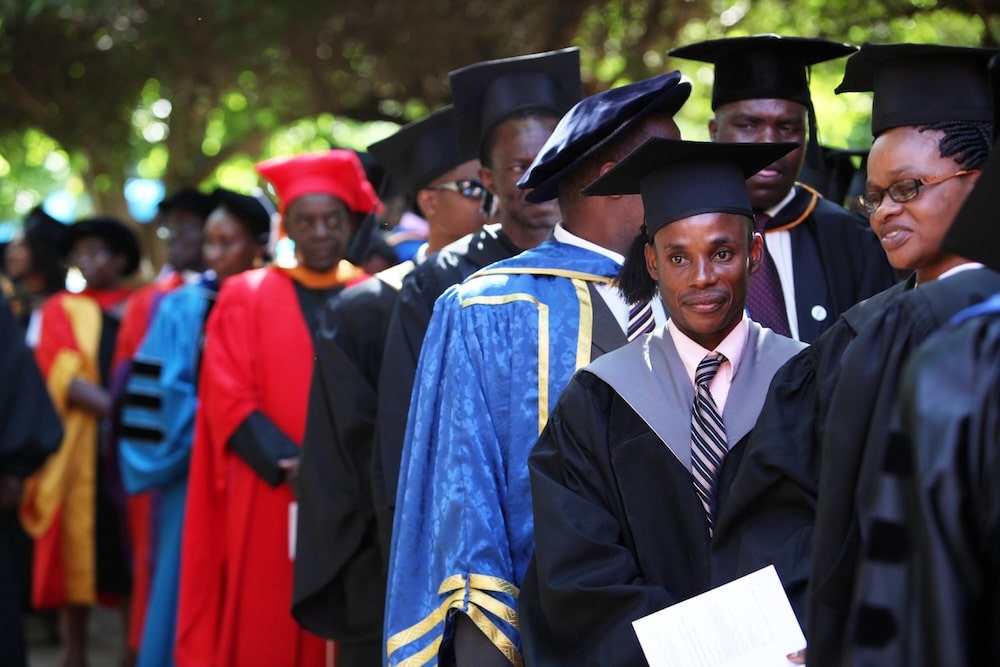Women of Color Scholars’ Series: Dellinger ‘Writes the Book She Wants to See’
By Jessica Love
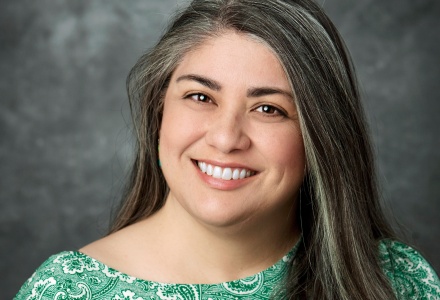
Dr. Lisa Dellinger recently earned her Ph.D. in theology, history and ethics from Garrett-Evangelical Theological Seminary in Evanston, Illinois, making her the 49th graduate of the Angella P. Current-Felder Women of Color Scholars program. Dellinger, who is working toward ordination as a United Methodist elder in the Oklahoma Indian Missionary Conference, is the second Native American graduate of the program.
The Angella P. Current-Felder Women of Color (WOC) Scholars program is administered by the General Board of Higher Education and Ministry (GBHEM), and is designed to provide financial, intellectual and personal support to United Methodist women of color pursuing doctorates in religious studies at seminaries and universities across the U.S.
Dellinger said she is “incredibly humbled to be a part of the too-short list.” Yet, the Oklahoma native noted that the lack of visibility of Native Americans in theological education is “tragic,” considering the long history of indigenous people in America.
“Not just in matters of religion,” Dellinger explained, “Just visibility and voice in general. The ability to be diverse and to be part of any national conversation on any level is such a rarity [for Native Americans].”
WOC Program Increases Visibility of Native Americans in Theology
That is why Dellinger said the WOC scholarship is vital in expanding the presence of Native Americans in theological education.
“It literally changes the face of theology,” she said. “You’re putting people in the academy that have different experiences—different cultural and gendered experiences. You’re changing the way theology is looked at, thought about, engaged, and it opens it up to such a wide audience.”
It was during a women in ministry course that Dellinger learned just how necessary the WOC program was in increasing the visibility and presence of Native Americans in religious studies.
“We had readings from African-American theologians, white feminist theologians, and Mexican and Latinx theologians,” Dellinger said. “There wasn’t a Native American component that dealt with Christianity, and afterwards I asked her [the professor], ‘Where are these voices?’”
Dellinger’s professor responded by pointing to the old saying, “You might have to write the book that you want to see.”
That moment not only solidified Dellinger’s life’s work but it also helped her realize the power of representation.
“A lot of people don’t hear their calling or see themselves engaging these conversations for a reason,” she said. “That’s because they don’t see themselves in the academy. They don’t see themselves on the bookshelf. They don’t see themselves in the churches. And so, that became important to me.”
Social Advocacy through Native Christian Theology
Dillinger’s work centers on Native Christian theology. Her dissertation, “Reclaiming Indigenous and Christian Narrative Epistemology: Refusing US Settler Colonialism’s Theological Anthropology of Sin,” explores differences in Native American epistemology, or grounding knowledge, and how those foundational stories are espoused in popular Christian Culture.
“I look at the way those narratives have deployed sin to regulate Native bodies through boarding schools, through missing and murdered women, through the military industrial complex, through the whole social network,” Dellinger said. “I compare it to precontact Native epistemology that still exists in many communities that are still practicing Native culture.”
Dellinger explained that her work is important because the settler, colonial idea of sin—which illustrates Native Americans as sinful—operates as a site where sin can be enacted and justified against Native people without consequences.
Dellinger’s social advocacy work does not stop with her research. She has published additional works challenging narratives about Native American Christianity and religion.
In 2015, Dellinger wrote a chapter titled, “Sin-Ambiguity and Complexity and the Sin of Not Conforming”in Steven Charleston and Elaine Robinson’s book, “Coming Full Circle: Constructing Native Christian Theology.”
In 2016, she contributed another chapter titled, “The Doctrine of Discovery as Christianized Genocide in the Lives of Indigenous Women and Their Communities” in Nami Kim and Wonhee Anne Joh’s book “Feminist Praxis Against U.S. Militarism.”
More recently, Dellinger spoke in The United Methodist Church’s July 1 Dismantling Racism Town Hall, where she urged others to use their privilege to amplify the voices and needs of minorities.
Scholarship Program Encompasses Something Bigger
Dellinger said the strong network of women and mentors provided by the Women of Color Scholars program had a major impact on her.
“It really makes a huge difference to have strong, intelligent women who share some of the same struggles, who have navigated some of those same struggles, who know their work… It’s just so empowering to know that you can be in touch with somebody, even if you’re not in the same program,” she said.
Dellinger added that the program is illustrative of the connectional power of the Church.
“You meet people through others who give you the wealth of their experience and friendships. Everything that they are really. I look at [WOC mentor] Anne Joh telling me, ‘You really need to do this,’ and I had no idea how it would change my life,” she said. “You’re a part of something so much bigger than who you are, and it goes on after you’ve had your scholarship.”
Dellinger’s is but one of the lives impacted by the Angella P. Current-Felder Women of Color Scholars Program. Your support can help increase the visibility of Native American and other women of color theological scholars. To give to the Angella P. Current- Felder Women of Color Scholars endowment directly, visit: www.gbhem.org/donate4students.
About GBHEM: The General Board of Higher Education and Ministry embraces the ministry of learning and leadership formation in The United Methodist Church and Wesleyan tradition; serving Christians around the world who are shaped by a process of intellectual engagement, spiritual and character formation, and leadership development. We cultivate a dynamic culture of call and vocational discernment that encourages lay and clergy leaders to discover, claim and flourish in God’s ministry and mission for the Church, the academy and the world. Follow us on Twitter and Facebook: @GBHEM.
Related Posts
The General Board of Higher Education and Ministry (GBHEM) approved a one-time Methodist Educational Fund (MEF) subsidy of $400,000 to each of the 13 United Methodist theological schools at its spring 2025 board of directors meeting.
Presentations from partners energize Global Ministries and Higher Education and Ministry board members, inspiring questions on how the church might be uniquely positioned to meet this moment of increased suffering around the world.
Report of General Secretary Roland Fernandes to the Board of Directors of Global Ministries and Higher Education and Ministry
